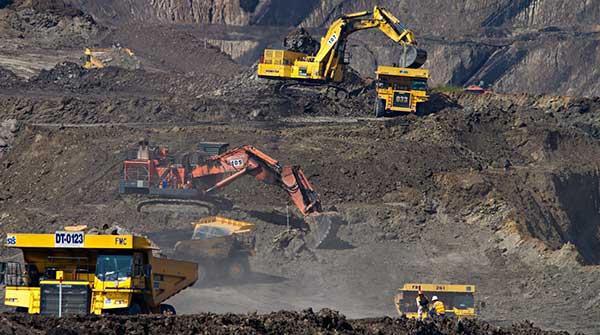Coal is the unjustly vilified energy source that’s here to stay
 The Climate Apocalypse alarmists look more than a little discredited with their claims of solar and wind energy reliability and low cost, global warming escalation, and more frequent extreme weather events.
The Climate Apocalypse alarmists look more than a little discredited with their claims of solar and wind energy reliability and low cost, global warming escalation, and more frequent extreme weather events.
Their ultimate warning that life on earth is on the brink of extinction due solely to human-generated carbon dioxide emissions appears far-fetched and is likely an exaggeration. It is high time we revisit the very source of energy that has been most vilified: coal.
Coal is the cheapest of all energy sources on a full-cost basis – not the misleading ‘levelized cost’ often cited, which conveniently leaves out essential factors. Coal is flexible to electrical demand fluctuations and is the most globally abundant fuel.
According to the International Energy Agency (IEA), coal is projected to generate more electricity in 2040 than all new renewable technologies, excluding hydro, combined. The IEA estimates that by 2040, there will be 730 gigawatts of new High-Efficiency Low Emission (HELE) coal plants, primarily located in developing countries.
In terms of efficiency, the average coal-fired power plant operates at 33 percent efficiency. However, state-of-the-art ultra-supercritical coal plants boast efficiencies of up to 45 percent, and advancements in technology could see this number rise to 50 percent by the end of the decade.
The IEA and other bodies project that the vast majority of new energy supply will come from coal-fired plants, with nuclear a distant second. Solar, wind, and other renewables are escalating but are still a relatively small proportion of overall supply. This is mainly because of the vast areas required and the high cost of either energy storage – batteries, usually – or baseload power needed to make them at least tolerably semi-reliable.
The benefits of coal are numerous. It is energy-dense, subsidy-free, relies on proven technology and can be easily transported via existing railways. Additionally, coal is abundant in countries that are not hostile, and existing shipping capacity makes it easy to export to allied nations. The reliance on unstable petro-regimes in Russia and the Middle East has proven to be unwise.
The impact of energy use in Canada, America, and Europe on greenhouse gas emissions is minimal, and the demonization of CO2 – a gas essential for plant life – and coal is misguided.
Natural gas, nuclear energy, oil, and coal all have vital roles to play in sustaining human civilization, until such time as fusion or other innovative technologies become viable alternatives.
Ian Madsen is the Senior Policy Analyst at the Frontier Centre for Public Policy.
For interview requests, click here.
The opinions expressed by our columnists and contributors are theirs alone and do not inherently or expressly reflect the views of our publication.
© Troy Media
Troy Media is an editorial content provider to media outlets and its own hosted community news outlets across Canada.


